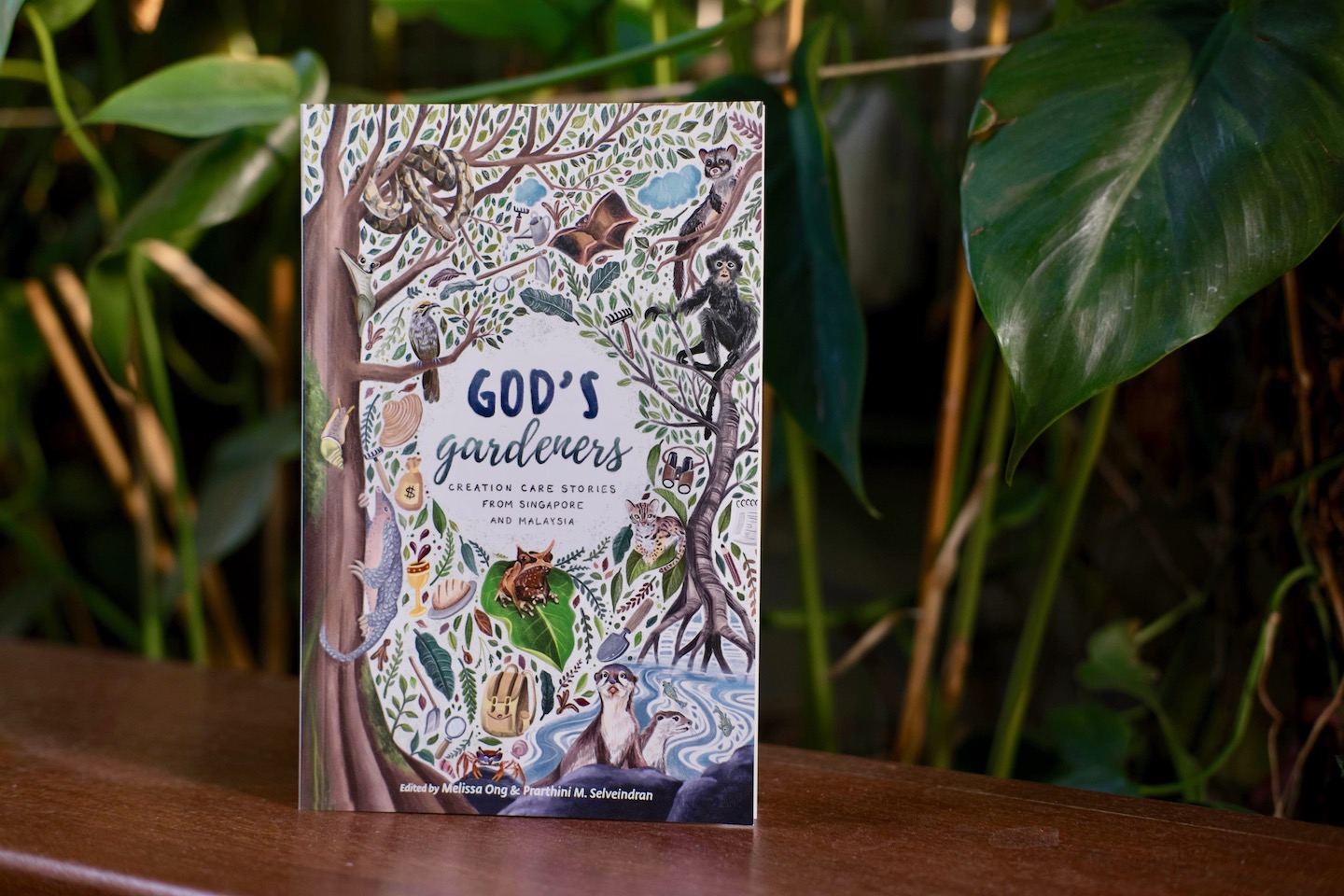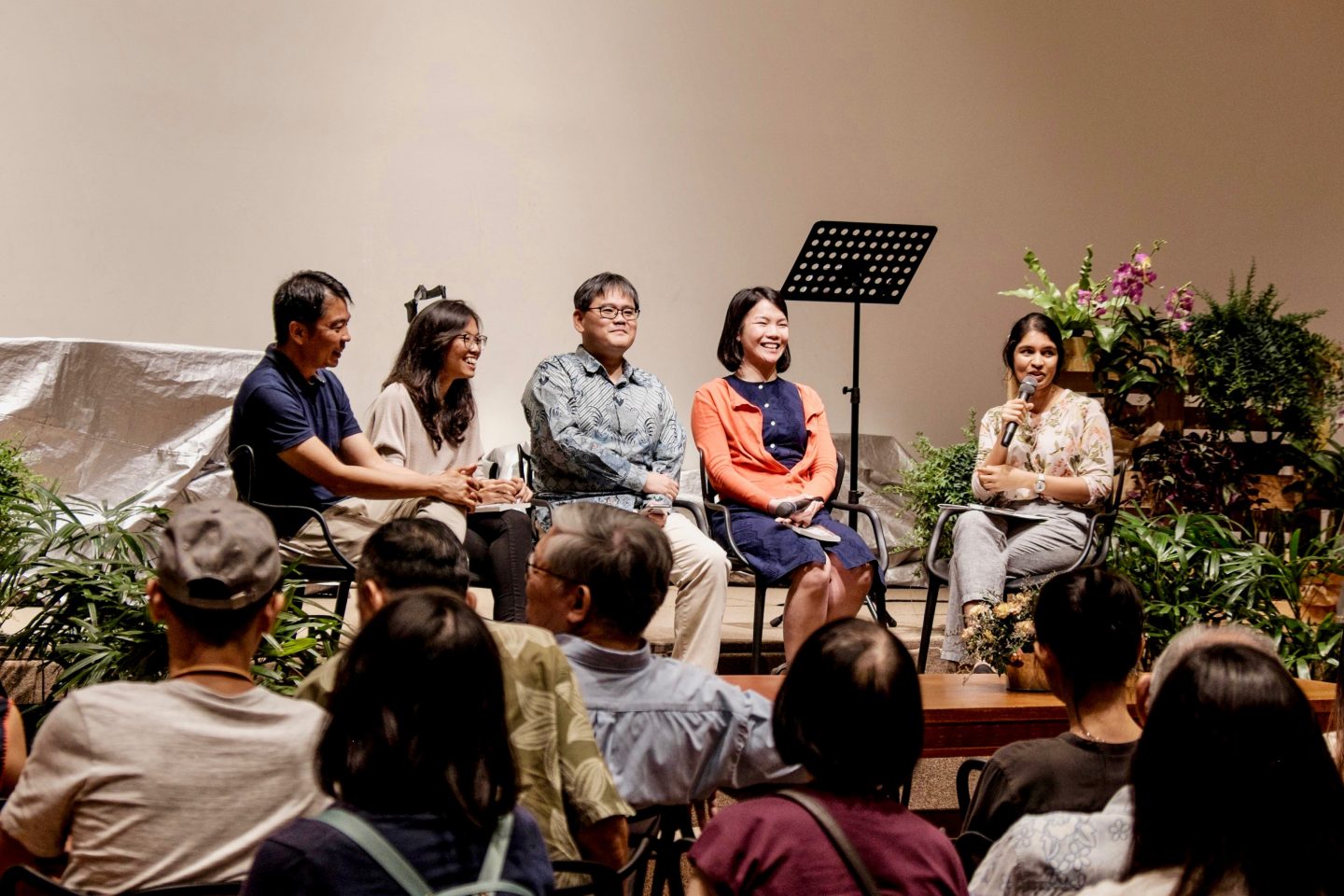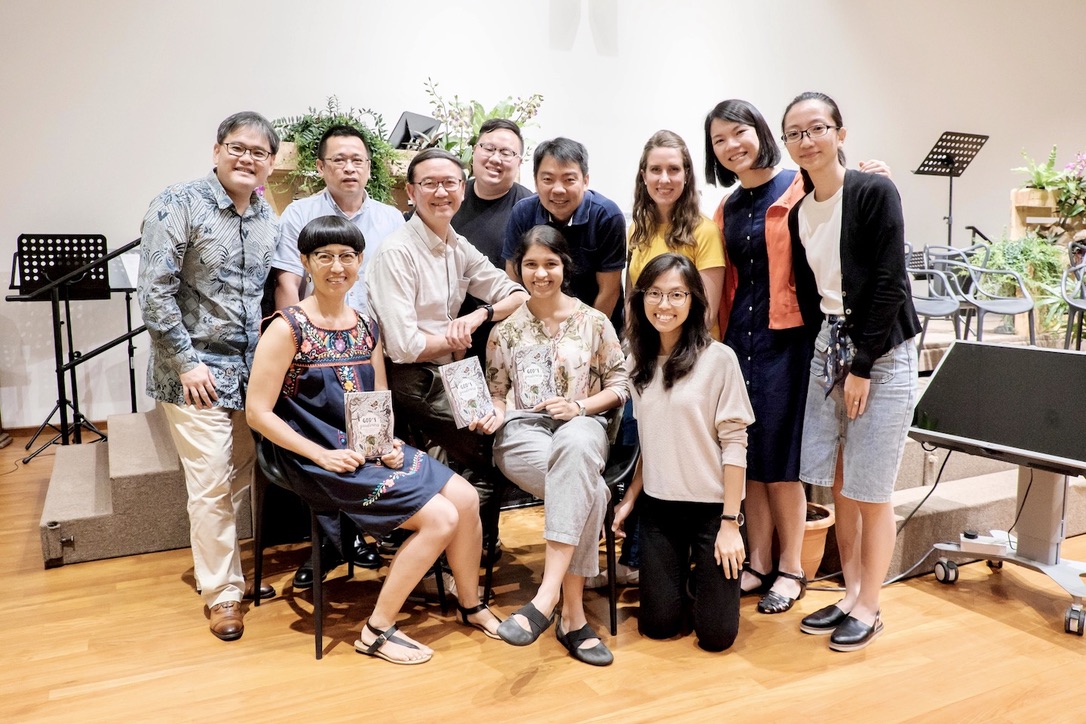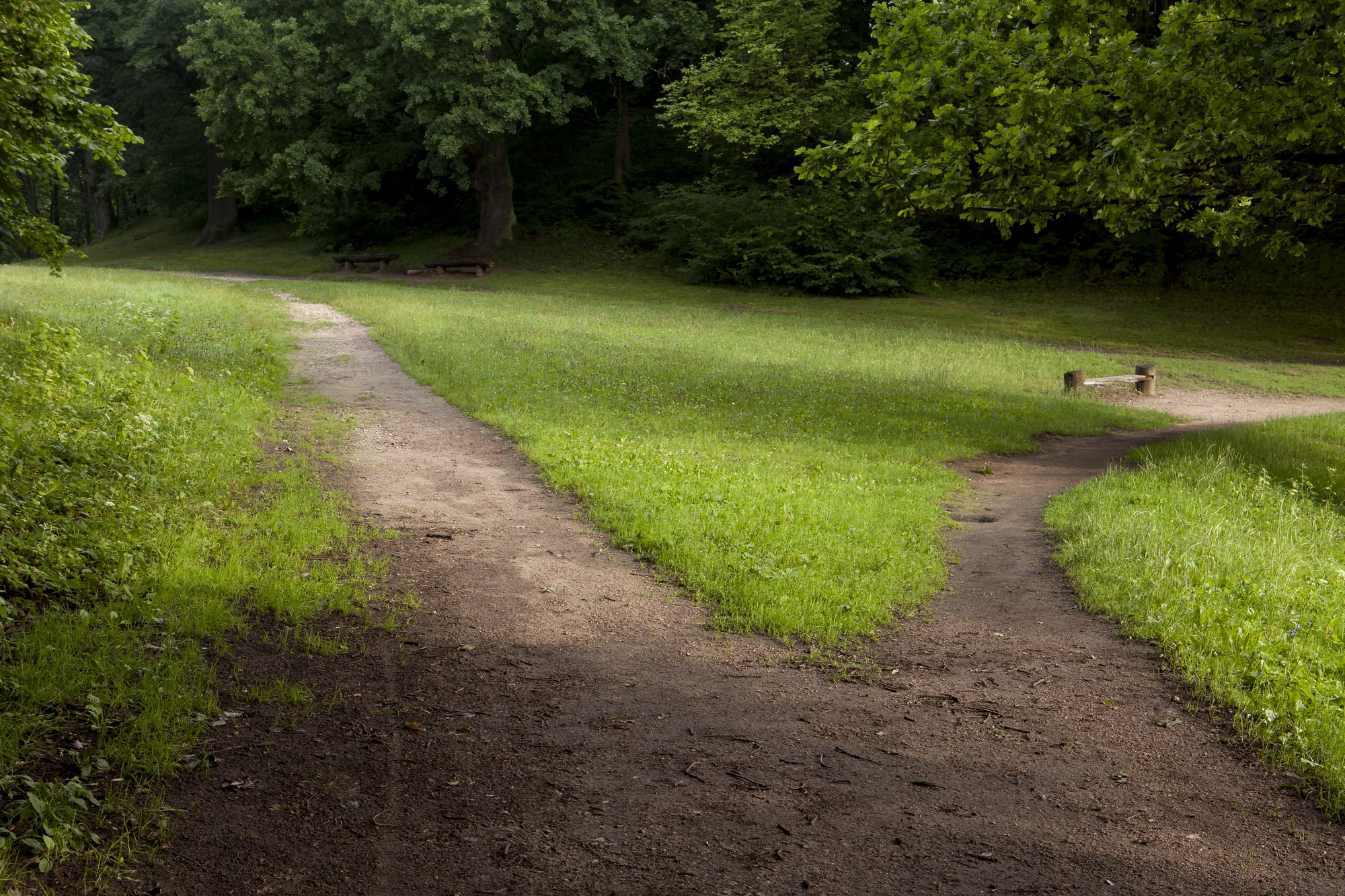Busy spring cleaning for Chinese New Year? You may have missed a spot
by Geraldine Tan // January 24, 2020, 1:19 pm

“Your fridge is the first thing you should spring clean!” urged Reuben Ang, managing director of Hesed and Emet, the parent company of popular caterer, Elsie’s Kitchen. Photo by JESHOOTS.COM on Unsplash.
With Chinese New Year around the corner, folks of Chinese descent use this opportunity to clear their houses of unwanted things to get their place ready for visitors. Common spaces and rooms are not spared from the sharp eyes of the matriarch of the house but there is a place that is often missed.
The fridge.
“Your fridge is the first thing you should spring clean!” urged Reuben Ang, managing director of Hesed and Emet, the parent company of popular caterer, Elsie’s Kitchen.

The cover of the book was deliberately designed to include images of animals indigenous to Singapore and Malaysia. Prarthini Selveindran and Melissa Ong, the editors of the book, hope that this will spur readers to appreciate and serve the creation which we are a part of. Photo courtesy of Graceworks.
He was speaking at the launch of Singapore’s first book on creation care, God’s Gardeners: Creation Care Stories from Singapore and Malaysia, at Katong Presbyterian Church on January 17. Ang was one of the contributors to the book.
“You may find items that expired in 1997! Or some Chinese herbs or dried shrimps hiding somewhere in some corner!” he quipped, drawing a chorus of laughter from the crowd.
But what does this have to do with creation care?
A part of living out the Gospel
Everything that we buy and consume contributes to our carbon footprint, from its production to its eventual destination in our pantries and fridges. If we are careless with how much food we buy, this could lead to wastage – an indication that we are not being good stewards of not just the monetary resources entrusted to us, but of creation as well.
To Reverend Lam Kuo Yung, senior pastor of Katong Presbyterian Church and another of the book’s contributors, creation care is simply defined as “a Christian in environmental action”.
“When someone wants to follow Christ, it includes thinking hard about what a Gospel-shaped life looks like. One will come to the realisation that creation care plays a significant part, though it is not everything. The Gospel will bring you to show concern for God’s creation,” said Rev Lam during a panel discussion at the book launch.
“God is going to restore all things to Himself and He ordains us to be a part of that project.”
While it may not be explicit in the Bible to reduce, reuse and recycle or go green, believers are reminded that all things have been created through Christ and for Him. And that through Him, all things will be reconciled to Himself, whether things on earth or in heaven. (Colossians 1:15-20)
“All things” means all things. And the Gospel, defined by the Merriam-Webster as “the message concerning Christ, the kingdom of God, and salvation”, would include the world we live in as God created all these things through Christ.
“This book is a call and an invitation to imagine and live wholly and holy in God’s world,” shared editors of the book, Prarthini Selveindran and Melissa Ong. They are both facilitators of Friends of A Rocha in Singapore, a community which seeks to help Christians connect faith and ecology.
“We hope the book will provoke further thought and help cultivate our imagining of who the Church can be, in her task of being gardeners of God’s good earth,” said Selveindran, who is also a campus staff worker at the Fellowship of Evangelical Students.
For the love of Christ
Climate change has grabbed headlines this year, because of the devastating Australian bushfires which has claimed the lives of 29 people and millions of animals. This has prompted calls for everyone, including governments, to take action to do their bit to reduce carbon emissions.
“I care for creation not with an attitude of fear or guilt … but because of my love for the Creator.”
“There’s this sense of anxiety, fear and guilt that often plays into much of the activism of a lot of secular environmentalists: ‘If we don’t do this, we are all going to die!’” observed Quek Tze-Ming, director of postgraduate programmes at the Biblical Graduate School of Theology and book contributor, during the panel discussion.
But the evening’s panellists reminded those present that that should not be the posture Christians should adopt when it comes to creation care.
“I care for creation not with an attitude of fear or guilt – like feeling guilty when you use plastic bags, but it is more of ‘I care for creation because of my love for the Creator, to steward what God has created well’,” said Priscilla Teh, one of the book’s contributors. She is a final-year Geography student in the National University of Singapore who started a community garden in her home church, Bethesda Pasir Ris Mission Church.

(left to right) Reverend Lam Kuo Yung, Priscilla Teh, Quek Tze-Ming and Hoi Wen Au Yong taking part in a panel discussion moderated by Prarthini Selveindran. Photo courtesy of Graceworks.
“As we live out our Christian lives, we know the end: There are going to be people who are going to suffer and die, environmental degradation will worsen. God is going to restore all things to Himself and He ordains us to be a part of that project,” said Quek.
“So, in that sense, our view of the end is different; we know the end and it is a good end,” he continued. “We can have hope and that hope is a certainty. But along the way, we are going to say, ‘How long, Lord?’ That’s a message throughout the Scriptures as well.”
It’s the little things
There are small steps that each of us can take in our bid to care for the world that we live in. For starters, you can clear out your fridge.
Ang did just that two months ago. “I was shocked. I had enough food to feed 200 people. I’m thinking: How long will I take to clear this? So I host a lot of parties now,” he said.
“Creation care is about being rather than doing.”
Take stock of what is inside and what is expiring soon or expired, he advised. Armed with this knowledge, plan your festive menu. If you want to up the ante, don’t buy things to cook, use what is existing in your fridge and pantry instead.
“Be creative with what you have! And these are really things that you can do at home. You don’t realise how much money is in the fridge so don’t keep buying things and throwing it away!” entreated Ang.
“Creation care is about being rather than a doing. There is no end to loving God and loving our neighbour and in some ways, I think that is who we are meant to be. And we are to develop habits of being that makes us grow in that direction,” said Quek.

Prarthini and Melissa (both seated) together with the book’s contributors. Photo courtesy of Graceworks.
Trinity Theological College’s Reverend Dr Andrew Peh, who also contributed to the book, concluded the evening with this prayer, one which we, too, can pray as we steward the earth that has been entrusted to our care:
“We know the end and it is a good end.”
“Lord, comfort the distressed as we stand on the brink of an ecological disaster. And at the same time, distress the comfortable, who think nothing of Your charge to be good stewards of Your creation.
“Help us to remember always that You speak to us through Your word but You also speak to us through the beauty of Your creation. And we will offer our best to answer Your call to reverence all that You have created.
“So send us forth and continue to empower us to serve as God’s gardeners, wherever You lead us. In You, with You and through You we humbly pray, amen.”
Business as missions: Reuben Ang of Elsie’s Kitchen takes “heartware” seriously
God’s Gardeners: Creation Care Stories from Singapore and Malaysia, $20, is available for purchase at Graceworks. The e-book version will be released in mid-February.
We are an independent, non-profit organisation that relies on the generosity of our readers, such as yourself, to continue serving the kingdom. Every dollar donated goes directly back into our editorial coverage.
Would you consider partnering with us in our kingdom work by supporting us financially, either as a one-off donation, or a recurring pledge?
Support Salt&Light


